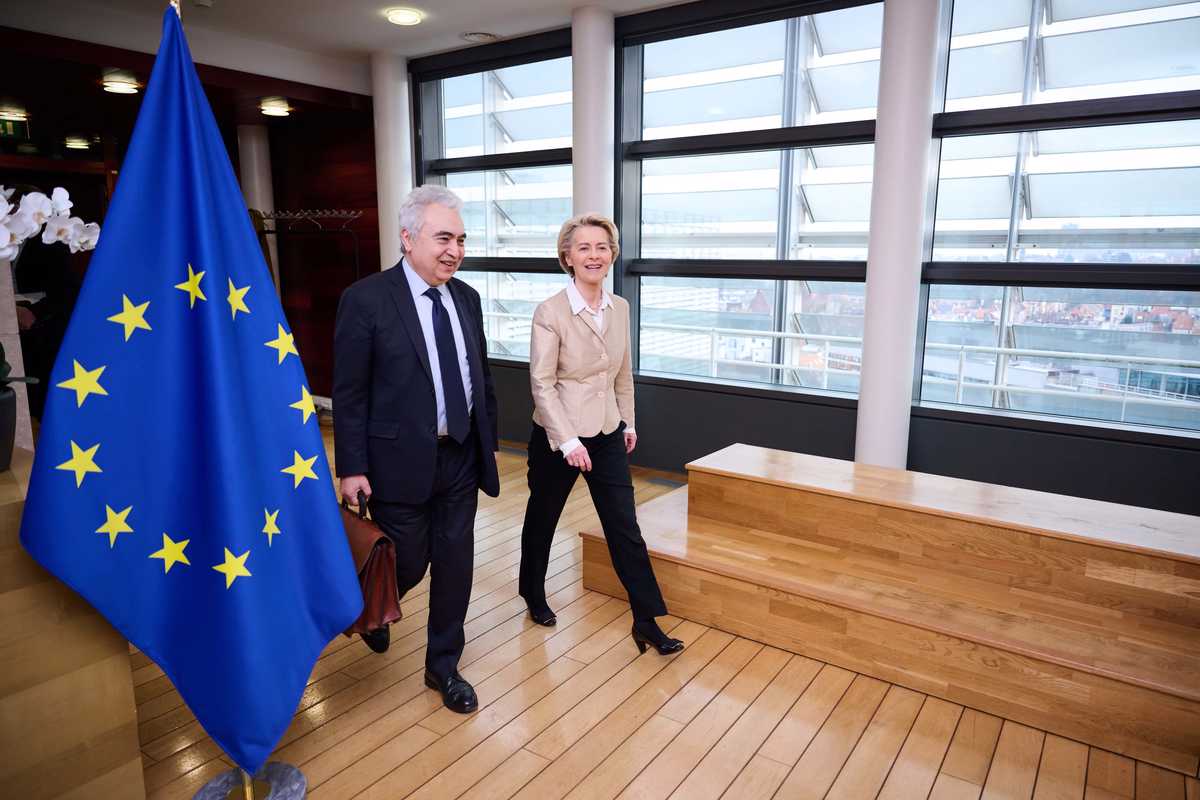Energy crisis to curb Russia's role in oil markets, accelerate energy transition - IEA chief
The International Energy Agency’s (IEA) executive director Fatih Birol expects a “permanent loss of standing” for Russia in global oil markets and warns that the global energy crisis is not over yet.

PHOTO: IEA executive director Fatih Birol with the EU Commission president Ursula Von Der Leyen. Twitter of @fbirol
“First, Russia played the energy card and it didn’t win. It now faces the likelihood of further declines in oil and gas output in 2023 and a permanent loss of standing in the energy world,” argued Birol, who is one of the most eminent energy experts in the world.
As the Russia-Ukraine war hits a one-year mark, Birol summed up the simultaneous "energy war" between Russia and the West, which has rocked global energy markets and fundamentally altered supply dynamics.
The energy crisis has caused the greatest disruptions in the West, particularly Europe, according Birol, adding that other regions, including developing nations have not been immune to aftershocks.
Russia invaded Ukraine on 24 February last year. Over the following three months, the US, UK and EU all agreed to ban most or all imports of oil, gas and other energy imports from Russia with different target deadlines.
The Group of Seven (G7) alliance - Canada, France, Germany, Italy, Japan, the UK, US and the “non-enumerated member” EU - and Australia did eventually walk the talk and have imposed sanctions of various degrees on imports of Russian seaborne crude oil and refined petroleum products.
G7 countries and Australia set two price caps on Russian refined products. A price cap of $100/bbl on products such as diesel and gasoil that trade at a premium to crude. And a cap of $45/bbl on products like fuel oil that are traded at a discount to crude. They had also previously set a price cap of $60/bbl on crude oil originating from Russia.
Russia retaliated by saying it would cut all ties with countries backing the price caps and refused to sell oil to these nations. Earlier this month it announced a 500,000 b/d production cut in March, which raised concerns about oil supply tightening.
Fatih Birol has urged caution, saying “Europe is certainly not out of the woods yet. Looking at the coming year, the situation appears fragile for both oil and gas – especially in Europe."
And with tightening global supply and a recovery in China's oil demand, the situation could quickly turn sideways, he argued.
“The well-supplied oil balance at the start of 2023 could quickly tighten as Western sanctions affect Russian production and exports, even with the safety valve provided by the G7 price cap,” said Birol.
However, Birol noted that a silver lining of the energy wars would be an acceleration of the green energy transition.
“The amount of renewable power capacity added worldwide rose by about a quarter in 2022; global electric car sales leaped by close to 60%; investments in energy efficiency jumped; installations of heat pumps surged, especially in Europe; and nuclear power is making a strong comeback.”
Scaling renewable energy capacity and speeding up the transition would help Europe and the rest of the world deal with the energy crisis, he concluded, urging governments to take "even stronger policy action" to deploy clean energy rapidly.
By Konica Bhatt
Please get in touch with comments or additional info to news@engine.online





